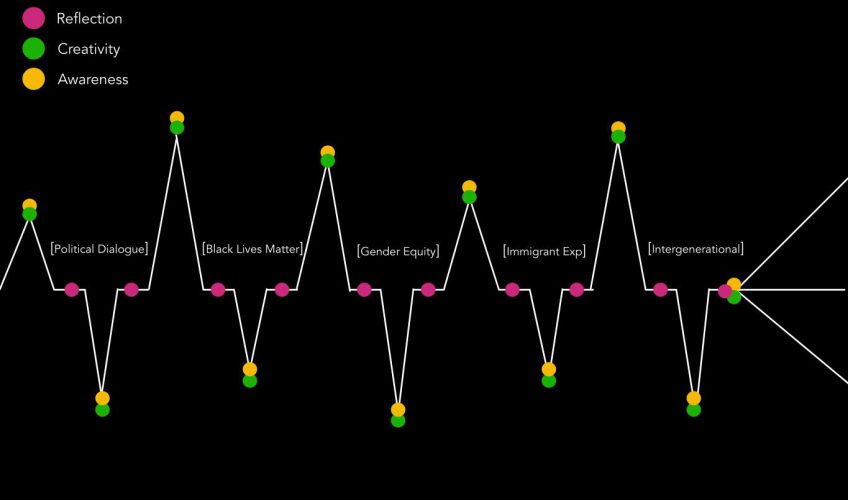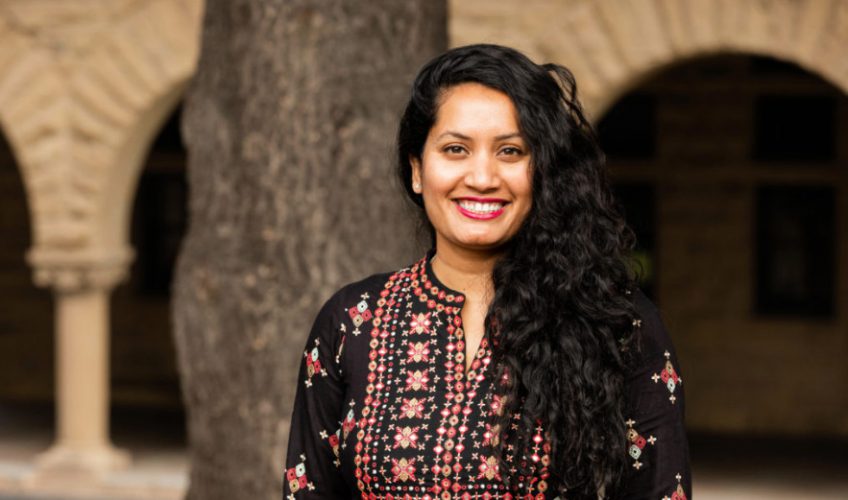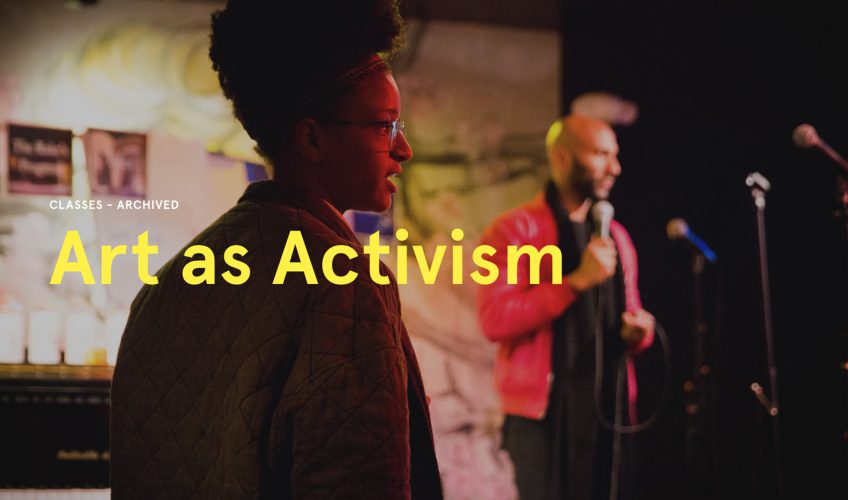Reflection, awareness and creativity are crucial components of the vision for Art as Activism – a course born at the Stanford Design School.
Design Lecturer Manasa Yeturu, whose work has often revolved around the intersection of design and social impact, recognized a need during the pandemic.
“The students engaging in problem solving using design needed to understand some of the social issues of our time,” Yeturu said. “I think a lot of students struggled with wrestling with their own identity in light of everything that came up last year [during the pandemic]. And the key question was: How might I step into this authentically and using art as a form of dialogue making?”
So, Yeturu built a course for students who are interested in stepping into this work with a more detailed understanding of who they are, a more invested sense of history and a historical understanding of intergenerational issues.
As the course description put it, students would need to be prepared for actively engaging in dialogue on some of the “most wicked problems of our time,” reflecting critically on their role as human-centered designers/students and exploring how to creatively build art-ifacts that create dialogue.
The syllabus outlines that the course purpose is: “To push you to reflect on your own identity and role as a student and citizen in a larger system. To build awareness of the context of movements that are in the forefront today, but have a long intergenerational history. And finally, to provoke you to expand your definition of the role of ‘art as activism’ and to use your reflections and awareness to create dialogue-provoking art in and across the spaces you exist within.”
To accomplish this course vision, Yeturu partnered with Ise Lyfe, Founder and Chief Executive Officer of Lyfe Productives, a California-based development firm.
Lyfe was compelled by Yeturu’s attention to detail and desire to teach around the arts and activism.
“I was excited to join the team in designing the class to give students a socio-political education as they explored creatively their own relationship with activism,” Lyfe said.
Yeturu and Lyfe recruited revolutionary artists to make appearances in class each week as students engaged in pre-readings on the historical context of the artist’s performance and activism roots, followed by active listening and engagement with the artist.
The rhythms led students in exploring the heart of the question: What is art as activism?
Lyfe explained that art as activism is not art for art’s sake. Rather, it informs and evokes.
“Art as activism reflects the times and the needs of the people,” Lyfe said. “The people normally, at large, are not artists. Artists are speaking to people at mass. Art as activism evokes a call to action. It forces you to engage in what we typically know is going on and we are attempting to look away from.”
After listening and learning, the students went to work tackling social issues near to them through the use of “art-ifacts.” These pieces of art – some visual, some interactive, some performance-based – were designed to speak to social issues.
The art-ifacts were varied and personal. One student offered a hopscotch themed around the racial divide that he set up at his hometown park. Another student visually presented a eulogy to the environment on Halloween night. Yet another developed an interactive work of art highlighting gender-based injustice. That piece was installed on a college campus.
While this type of class might not be offered at all colleges/universities, Lyfe encourages people across educational fields who are interested in arts and activism to take an ethnic studies class to explore these issues further.
“Activism is human decency,” Lyfe said. “You probably have a grandma, aunt, uncle, cousin in your life who never called themselves an activist, yet their whole life they made space for others. Being active in a community doesn’t require some level of training or having it right before you apply. Any activist will tell you that activism is the field where you hear ‘expert’ the least.”




Leave a Reply